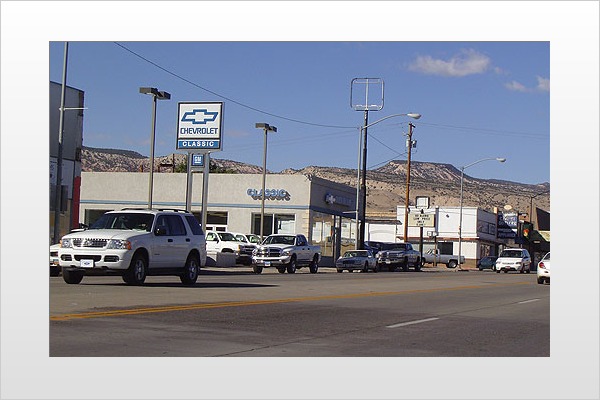
On a cross-country plane trip, a gentleman from a small town inquired about car buying. After explaining how he should be using the Internet to get price information, we asked him how he bought cars in the past.
"When I need a new car I call my guy at the Ford dealership," he said. "I pay what he tells me to pay."
Negotiating a deal on a car depends on having the ability to take your business elsewhere. In rural areas, however, there is often only one dealership for miles around.
In the modern era of car buying, those with one dealership in the county have just as much bargaining power as those with 10 dealerships within a square mile. In fact, rural buyers can often find themselves at a significant advantage when buying because of how the dealership networks are set up.
Edmunds.com sent out consumer advice editor Mike Hudson to the rural West and Midwest to talk with dealers about how their businesses differed from those in the major cities of America. Here's what he learned.
Bargaining With People You Know
Our typical advice for buying involves budgeting, test-driving and finally doing research on the invoice price and True Market Value (TMV)® of the vehicle. You can use this information as you bargain with multiple dealerships over the phone and finally in the showroom.
For the rural buyer, these steps are basically the same. The biggest challenge will be finding enough cars similar to the one you want to buy. If you only have one dealership in town from each manufacturer, then you'll have a more difficult time finding the perfect car. And in many parts of the country, there just isn't access to any import dealerships, which decreases your options as well as your ability to drive a hard bargain.
Perhaps most difficult for rural consumers is the actual bargaining process, which can pit you against a person you know. Owners of small-town dealerships often stand as pillars of the community, sponsoring football field scoreboards or charity golf outings. The dealership has stood for decades, selling cars to generations of people. And now you're going to go in there and tell the salesman that you've got his invoice prices and want a better deal?
You can expect a small-town dealer to plead poverty with you. They'll say how the big-city guys are running them out of business. While there are challenges to being a small-town dealer these days, you should understand that these dealerships can make huge profits even today. And just because they are small doesn't mean they get to charge you hundreds or thousands more than another dealer would.
The key is to use the Internet to open other markets to you. .